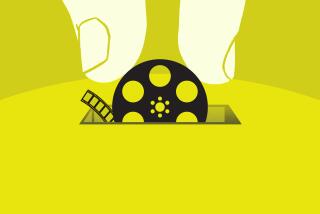Q & A WITH ROBERT D. BASS
For many people, the thought of filing for bankruptcy conjures feelings of shame and Dickensian images of decrepit debtor prisons. Robert D. Bass, an Encino bankruptcy attorney who has been practicing for 20 years, says that while such thoughts are understandable, bankruptcy in fact represents a solution to financial situations that have gotten out of control--less a cruel punishment than a chance to start over. He notes that in the past few years San Fernando Valley bankruptcy filings have been on the rise, an unfortunate side effect of California’s economic downturn. Bass discussed the fundamentals of bankruptcy filings with Times correspondent David E. Brady.
Q: What traps can draw people into bankruptcy?
A: If you go through periods of time where credit is easy, where credit cards are available, you can get lulled into a sense of well-being if you make enough to make minimum payments. You end up not ever making a dent in what you really borrowed and what you really charged. And people often find that they get to a point where they have no way at all of repaying what’s owed on credit cards. . . . If there’s a lesson to be learned from the ‘80s, it’s not overextend yourself, live within your means, worry about tomorrow, maintain savings and be concerned and be prepared for the rainy day that’s going to come along.
*
Q: How does a person know when to file for bankruptcy?
A: It’s when the fixed obligations, the credit card obligations, the car leases and the level of monthly payments are something that just can’t be met or maintained by the borrower any longer. When all you’re doing is paying the minimum payments on your credit card, which is basically an interest payment and not making a dent, it may be time to consider filing at that point. . . . People file when they can no longer take collection agencies calling them, the wage garnishments, the lawyers’ letters, the lawsuits and those kinds of things. Bankruptcy gives the honest debtor a fresh start and allows them to take what they earn and use it to go forward and support their family and themselves as opposed to paying for past sins that have been imposed through overborrowing or overextension of credit.
*
Q: What are you allowed to keep after filing?
A: When you file bankruptcy, the federal bankruptcy laws as well as the laws of the state of California provide for certain exemptions. By and large, the typical individual or consumer who files a bankruptcy will be entitled to keep their personal effects, their furniture, their clothes, some nominal equity in a car. They will be able to maintain their house. . . . For the typical person or family who’s going to file a Chapter 7 bankruptcy case, their life will go on with little interruption and very little loss of assets. And one of the things a bankruptcy lawyer tries to do when somebody comes to them talking of filing is exemption planning, to ensure that the maximum possible exemptions are taken advantage of.
*
Q: Once you’ve filed, how does it affect your future income and purchases?
A: I think your ability to obtain credit in the future will be largely dependent on your earning capacity and your ability to establish to a lender that you’ll be able to repay what you borrow, whether it’s buying a car, consumer credit or buying a house. A bankruptcy’s really a last resort because it’s a hard concept for many people to come to grips with. Most people have led their lives never thinking or imagining that they’d have to file a bankruptcy.
*
Q: Can someone file for bankruptcy without a lawyer?
A: In the simplest of cases, it probably can be done without a lawyer. Without the benefit of the legal advice, people may file and find that it really wasn’t necessary and then when they really do need the benefits of a bankruptcy they won’t be able to file because there’s a prohibition on filing again for a substantial period of time.
*
Q: What is your most important right after filing?
A: It stops creditors from harassing you, from continuing collection efforts, from continuing foreclosures. I think your most important right is to be left alone and to go forward and look toward the future with some sense of hope and a feeling that you’ll make it again.
*
Q: How long does a bankruptcy filing affect your credit rating?
A: In terms of actually affecting your credit, I would suspect that probably for a year to two years it is difficult to get credit. After that period of time it is probably much easier.
*
Q: What advice would you give someone thinking of starting a business in the Valley?
A: Be cautious. Make sure the business is adequately capitalized so that during down times or during a start-up period you have sufficient capital to cover you and pay your operating expenses. I would strongly urge anybody who’s running a business to be sure that all taxes are paid and obligations to the government are kept current. And anybody’s who going to open a business ought to have a heck of a lot of luck.
*
Q: What causes most businesses to fail?
A: The failure to face problems when they first start surfacing is probably one of the major contributors to businesses ultimately failing. When people finally realize it’s time to do something, either to seek out consultants or other professionals to look at their business, many of those businesses are already so far under water that there is nothing that can be done.
*
Q: What’s the most common misconception about bankruptcy?
A: It is the realization that it is not an admission of failure. It is a remedy that has been provided by Congress, recognizing that people get into situations, not dishonestly, but just out of circumstances beyond their control. There is a remedy available that lets one get rid of that. The misconception is that bankruptcy is something that ought to be avoided or something terrible like the plague.
More to Read
Inside the business of entertainment
The Wide Shot brings you news, analysis and insights on everything from streaming wars to production — and what it all means for the future.
You may occasionally receive promotional content from the Los Angeles Times.










